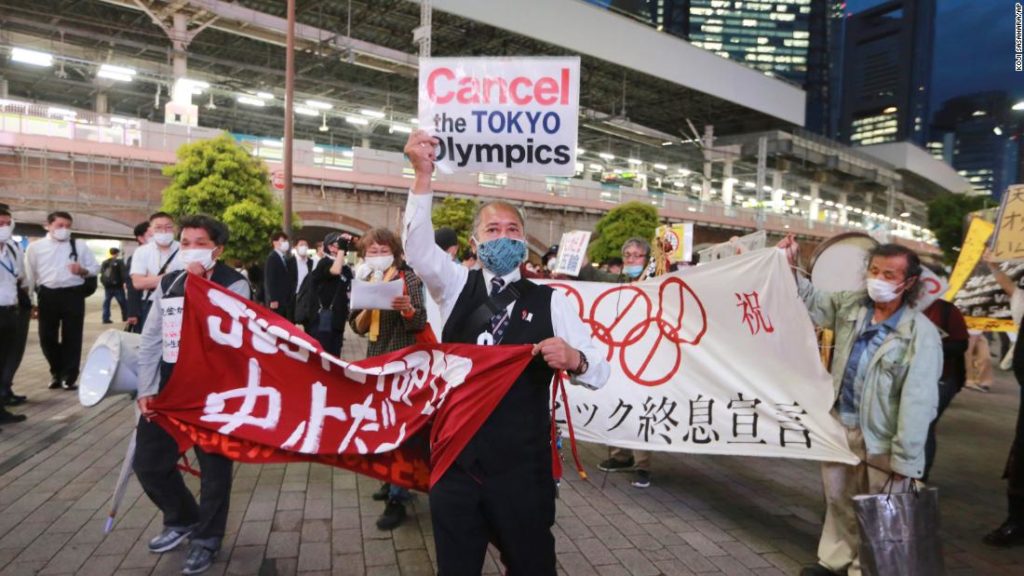Organizers have released a playbook, the final version of which is expected next month, outlining a series of countermeasures that they say will ensure the Games can take place in a safe and secure way, even as thousands of athletes from around the world descend on Tokyo.
With the Winter Olympics in Beijing now less than a year away, officials have also said that the Games won’t be postponed again and that a cancellation would be the likeliest option if it’s deemed unsafe to hold the Games from the rescheduled start date in July.
How would a cancellation come about?
According to legal expert Jack Anderson, it’s likely to be growing pressure on the organizers that forces a cancellation — a “political decision,” rather than a strictly legal one.
“And this is not an ordinary one-off event. It is obviously a huge multidisciplinary event across many different stadia.”
Anderson adds that a termination of the host city contract would see the risks and losses fall largely with the organizing committee, which is mandated to take out insurance for the Games.
“In that way, it’s straightforward,” he says. “But of course, in other ways it’s not straightforward because it’s not simply a contract between the International Olympic Committee and the host organizing.
“We have sponsorship contracts, we have broadcasting, we have hospitality, we have a range — a contractual web of liabilities — that are in place here. It’s a huge contractual issue and would have huge insurance ramifications if it were to not go ahead.”
“The International Olympic Committee — while it is now a very rich organization — its wealth is predicated on its primary asset, which is hosting the Games,” Anderson explains.
“Therefore, not to have a Games, and the knock-on effect that that has for sponsorship, for broadcasting, would be huge. It would be difficult to measure that. But I think you could comfortably say that insurance alone would not cover it in terms of reputation and economic damage.”
What about the athletes?
Arguably, it would be the athletes who miss out most from a canceled Olympics.
To cancel the Games, Coe said, would be to “discard a generation of athletes who have spent over half their young lives in pursuit of this one moment.”
The other issue when it comes to athletes is that countries around the world are at different stages of pandemic recovery and have varying access to vaccines, although Coe said he thinks “the bulk of the world will be at the Games.”
With public pressure to cancel the Games mounting, Japanese Prime Minister Yoshihide Suga said last week that he has “never put (the) Olympics” as a priority.
“My priority has been to protect the lives and health of the Japanese population. We must first prevent the spread of the virus,” he said.
The Olympics have been canceled on three previous occasions: in 1916, 1940 and 1944, each time because of world wars.
You may also like
-
Super League: UEFA forced to drop disciplinary proceedings against remaining clubs
-
Simone Biles says she ‘should have quit way before Tokyo’
-
Kyrie Irving: NBA star the latest to withhold vaccination status
-
Roger Hunt: English football mourns death of Liverpool striker and World Cup winner
-
‘Every single time I lift the bar, I’m just lifting my country up’: Shiva Karout’s quest for powerlifting glory

